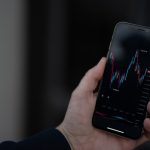What is Forex and Forex Trading? (2023 Guide)12 min read
Reading Time: 4 minutesForex trading is the largest financial market today that generates income from foreign exchange. It is the financial market where trillions of dollars change hands and that is how it remains liquid.
Traders in the forex trading ecosystem often strategize on fluctuations and aim to make a profit. This involves many factors such as risk management, strategies and analysis.
Forex Trading Definition: Basics and Key Concepts
Thanks to forex trading, you can buy currencies and sell them if you prefer. You can even automate these transactions by setting up automated sell and buy orders.
Currency pairs represent the value of one currency compared to another. Traders predict currency appreciation or depreciation. Understanding currency pairs, pips, bid/ask prices, and leverage is essential for a clear grasp of forex trading. Pips represent the smallest currency price change in forex trading.
The bid price is the selling price, the ask price is the buying price, and the spread is the difference between them. Leverage allows for larger positions with less capital but comes with increased risk. Understanding these elements is essential for informed trading decisions.
How to Analyze Forex Market Trends and Patterns?
To succeed in forex trading, it is important to understand trends and patterns in the financial world. Among the responsibilities of traders is to master market dynamics.
This is achieved through analysis. Various market monitoring tools, from charts to indicators, should be used. With these tools that monitor market conditions, you can manage more strategic operations. Recognizing support and resistance levels helps traders identify potential entry or exit points.
Traders can choose between trend-following and counter-trend strategies based on observed trends and patterns. Traders aim to maximize their income from fluctuations by utilizing such prevalent trading strategies.
Risk Management Strategies for Forex Traders
Managing risk is crucial in forex trading to preserve capital and ensure sustainable profitability. Traders employ strategies like stop-loss and take-profit orders to minimize potential losses.
Diversification reduces vulnerability by allocating investments among different currency pairs. Proper position sizing considers account size, risk tolerance, and stop-loss levels.
A favorable risk-reward ratio ensures potential profits outweigh potential losses. Discipline and emotional control are vital for effective risk management, preventing impulsive decisions driven by fear or greed. By implementing these practices, traders increase their chances of consistent profitability in the forex market.
Developing a Forex Trading Plan and Strategy
Developing a structured trading plan with defined entry and exit requirements, risk management principles, and a clear strategy is vital for consistent success in forex trading.
Traders should maintain discipline and avoid impulsive decisions driven by emotions. The plan should outline criteria for entering and exiting trades and incorporate risk management guidelines, including appropriate stop-loss orders and position sizing.
A comprehensive plan integrates a trading strategy, incorporating technical and fundamental analysis. Traders should be adaptable and willing to adjust their plans to evolving market conditions. A well-defined and adaptable trading plan is essential for sustained success in forex trading.
Technical Analysis Tools for Forex Trading
Technical analysis tools like moving averages, oscillators, and Japanese candlestick patterns are vital for successful forex trading. They help identify trends, confirm signals, and provide insights into market sentiment.
Oscillators indicate potential trend reversals by fluctuating within predetermined ranges, indicating overbought or oversold market conditions. Japanese candlestick patterns visually represent price movements and reflect market sentiment.
By utilizing these tools effectively, traders can make informed decisions and improve their chances of success in the forex market.
Fundamental Analysis and Its Impact on Forex Trading
Fundamental analysis is crucial in forex trading as it involves assessing economic, social, and political factors that impact currency values. Traders use this analysis to make informed decisions about trading.
Factors such as GDP, interest rates, and employment data are important indicators in fundamental analysis. By integrating fundamental analysis with technical analysis, traders can gain a comprehensive understanding of the market and make well-informed trading choices.
Choosing the Right Forex Broker
Choosing a reliable forex broker is crucial for success in the foreign exchange market. Important factors to consider include regulatory status, trading platform quality, spreads and commissions, customer support, available trading instruments, and conducting thorough research.
By carefully evaluating these factors and comparing different brokers, traders can make an informed decision that aligns with their trading goals and preferences.
Forex Trading Strategies for Traders
Forex trading strategies include trend following, range trading, breakout trading, and carry trading. Trend following involves identifying and following the dominant market trend.
Range trading takes advantage of price fluctuations within a specific range. Breakout trading focuses on significant price movements when prices break important levels of support or resistance.
Carry trading exploits interest rate differentials between currencies. It’s important for traders to practice and study these strategies before implementation.
Trading Forex with Cryptocurrencies
The integration of cryptocurrencies in forex trading provides new opportunities for traders to diversify their investments. It offers access to a wider range of financial instruments and increased liquidity. However, traders must be aware of the high volatility and risks involved. To trade cryptocurrency forex effectively, understanding both markets is essential. Educating oneself and implementing risk management strategies are crucial in navigating this evolving environment.
Forex Trading for Beginners: Tips and Common Mistakes
- Educate yourself: Learn the fundamentals of forex trading from online courses and resources.
- Practice with a demo account: Gain experience and test strategies without risking real money.
- Manage risk: Set a limit on the capital you’re willing to risk per trade and use stop-loss orders to protect your account.
- Avoid common mistakes: Don’t overtrade or let emotions drive your decisions. Stick to your trading plan.
- Continuously learn and adapt: Stay updated on market news, economic events, and new trading techniques to enhance your skills.
Be patient and build a solid foundation while continuously learning to improve your forex trading journey.
Automated Forex Trading: Pros and Cons
Automated forex trading using algorithmic systems is gaining popularity due to its advantages of fast execution and multi-market analysis. However, relying solely on technology can be risky due to system failures and the limited adaptability of algorithms in volatile markets. Combining automated trading with human surveillance can optimize results and mitigate these limitations.
Scalping and Hedging Strategies in Forex Trading
Scalping and hedging are popular forex trading strategies. Scalping involves quick trades to take advantage of small price movements, while hedging aims to protect against negative price changes.
While scalping is short-term and requires quick decision-making, hedging is a strategic approach to minimizing risk. Both strategies have benefits and risks, and traders must choose based on their goals, risk tolerance, and trading style. Continuous evaluation and adaptation are essential for success.
Forex Trading App for Mobile and Desktop
Forex trading apps offer numerous advantages, including access to up-to-date market data for informed decision-making, prompt trade execution for agility in volatile markets, and user-friendly interfaces for an enhanced trading experience.
It is crucial to choose a reliable and user-friendly app to ensure security and maximize trading effectiveness. Overall, forex trading apps have revolutionized the way traders engage in the foreign exchange market.



